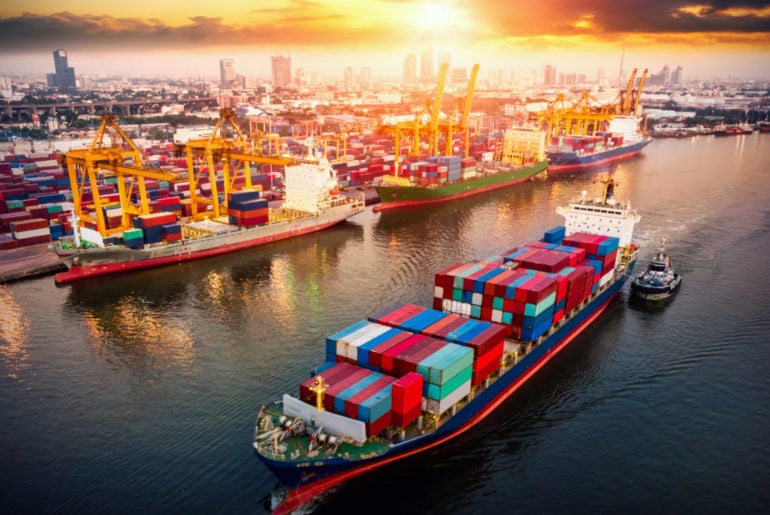The implementation of the Polish Hydrogen Strategy, adopted by the Polish government in November 2021, naturally requires a number of legislative actions aimed at the creation of a stable regulatory environment. This should remove barriers to the development of the hydrogen market and encourage a gradual increase in investments in this sector.
On 7 October 2022 the Malaysian Minister of Finance tabled the Budget 2023 which covers the following 3 agendas, each supported by the agenda’s individual core focus and strategies:
• Responsive Budget – to expand fiscal policy
• Responsible Budget – to ensure financial sustainability of the Government
• Reformist Budget – to implement reforms and enact policies that could adapt to new norms
The comprehensive list of objectives within the Budget 2023 among others, is to strengthen economic recovery post COVID-19 and numerous incentives and action plans had been laid out to achieve these objectives. This alert focuses on the Budget 2023 highlights that would have an impact on the projects and infrastructure industries in Malaysia.
Current global geopolitical changes have opened up new prospects for Algeria. On the one hand, Algeria is being courted by Europe and redoubling its efforts to increase its energy offering to reap record profit amid high gas prices. On the other hand, additional gas revenues offer opportunities for Algeria to develop the local industry in order to reduce its dependence on imports and fossil energy in the long term, and create jobs and technological partnerships. But can Algeria effectively create a competitive and business-friendly climate to attract foreign investors?
The year 2022 marks a noteworthy year for a quantum leap in Thailand’s electric vehicle market. Against the backdrop of Thailand’s commitment to carbon neutrality and net-zero greenhouse gas emissions at COP26, combined with the unexpected uncertainty in oil and gas prices, Thailand’s EV market has accelerated to a new peak. Providing that the 30@30 goal under the national EV roadmap (i.e., to raise the proportion of zero-emission EVs to 30% of all domestic vehicle production by 2030) goes as planned, we take a look at what to expect in Thailand’s EV space, along with what has been happening during the first half of 2022.
Following years of market domination by the conventional automobile industry, EV technology is now emerging as an environment-friendlier alternative, opening up various new opportunities for businesses as well as consumers all around the world. EV development permeates the whole chain of the present automotive industry, from the manufacturing and distribution sectors to subscription and ride-sharing or ride-hailing businesses. To operate an EV business in Thailand, there are certain legal concerns you need to take into account.
An increasing number of countries have been unveiling their detailed legislative frameworks and extensive state support packages aimed at developing the hydrogen market in the context of the race to net zero. The US is not a new participant in this race. The 2021 Infrastructure Investment and Jobs Act allocated USD 9.5 billion for clean hydrogen. The Inflation Reduction Act signed into law in August 2022 provided additional policies and incentives for the development of the hydrogen market, including a production tax credit, which is aimed at boosting the US market for clean hydrogen. However, the US Department of Energy’s publication of a draft Clean Hydrogen Strategy and Roadmap (CHSR) takes the US government’s level of commitment to clean energy to the next level, as well as showing its willingness to work with existing and potential hydrogen market participants and other stakeholders to develop a framework that really works. This article examines the key provisions of the CHSR.
The ACCC has announced two internet sweeps to identify misleading environmental and sustainability marketing claims and fake or misleading online business reviews and a separate sweep to target fake or misleading online reviews and testimonials. The sweeps are being conducted as part of the ACCC’s compliance and enforcement priorities for 2022-23 announced earlier this year, with the broad aim of identifying deceptive advertising and marketing practices related to the environment and sustainability.
The Malaysian Government had, on 19 September 2022, launched the National Energy Policy 2022-2040 (“NEP”) with the following objectives:
• Enhancing macroeconomic resilience and energy security
• Achieving social equitability and affordability
• Ensuring environmental sustainability
In order to achieve these objectives, numerous action plans have been developed and laid out in the NEP and this client alert aims to provide an overview of the Low Carbon Aspiration 2040 initiative and highlight key action plans that would be of interest to all types of investors and companies intending to comply with environmental, social and governance requirements.
On 14 September 2022, the European Parliament voted to adopt its negotiating position on the revision of the Renewable Energy Directive II. The Parliament agreed that its position should include a new headline target that 45% of all EU energy use would be sourced from renewable sources by 2030, and upward revised sectoral targets for buildings, transport and heating compared to the European Commission’s proposal.
There have been suggestions in the media that the EU ‘additionality’ requirements applied to the production of renewable fuels of non-biological origin, such as renewable hydrogen, have been effectively scrapped. This article clarifies the legal position in relation to the current status of the ‘additionality.’
On 19 September 2022, the European Commission adopted a proposal that would give the EU sweeping new powers to address shortages and supply chain disruptions of crisis-relevant and strategic goods and services in times of crisis. The proposed Single Market Emergency Instrument (SMEI) is the latest in a series of EU measures that will impact supply chains, including new proposals for rules on foreign subsidies, corporate sustainability reporting and due diligence, carbon taxes, deforestation, and, most recently, a proposal to prohibit products made with forced labor from the EU internal market. Once adopted, the SMEI will impose far-reaching obligations on EU firms.



